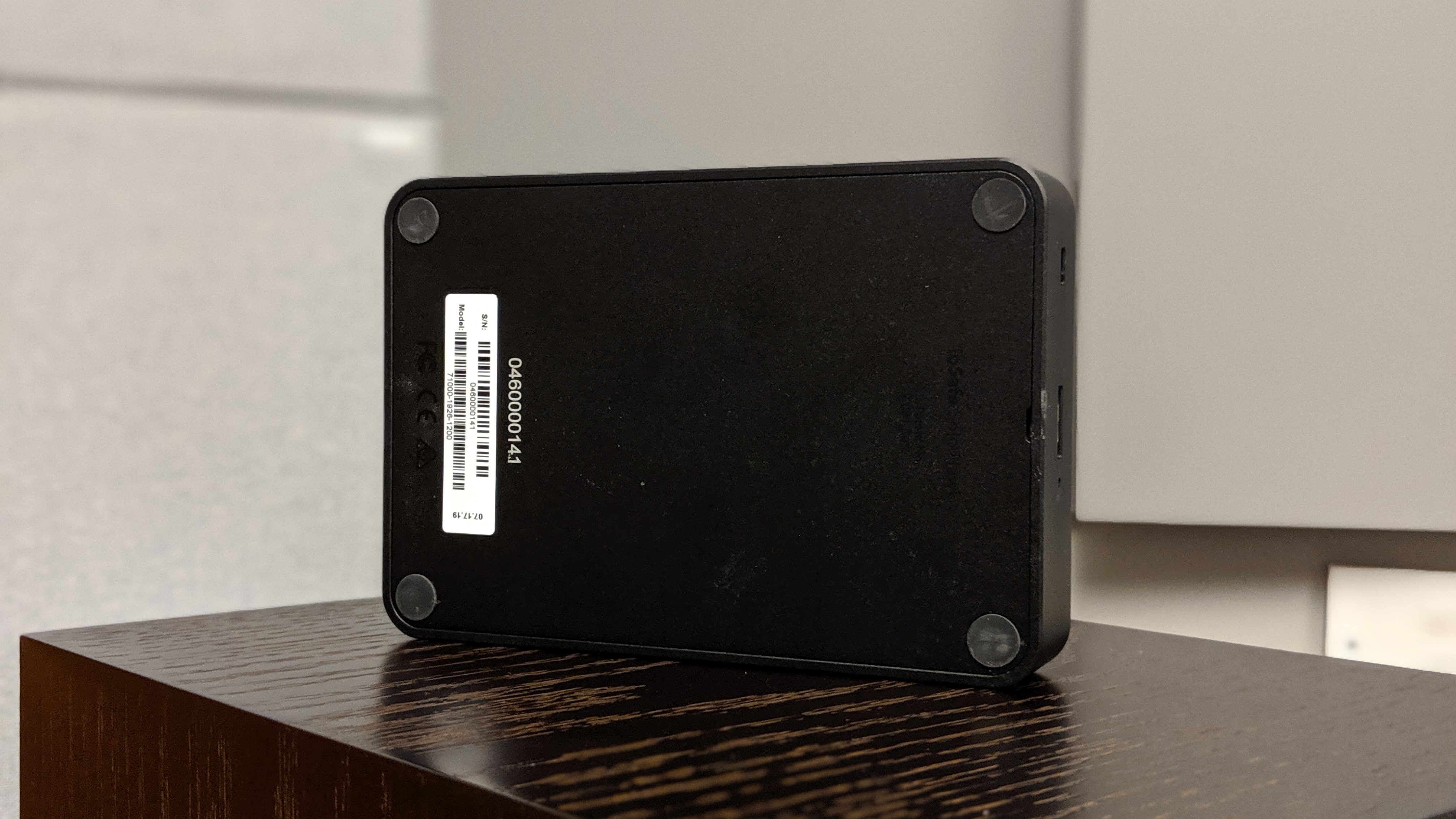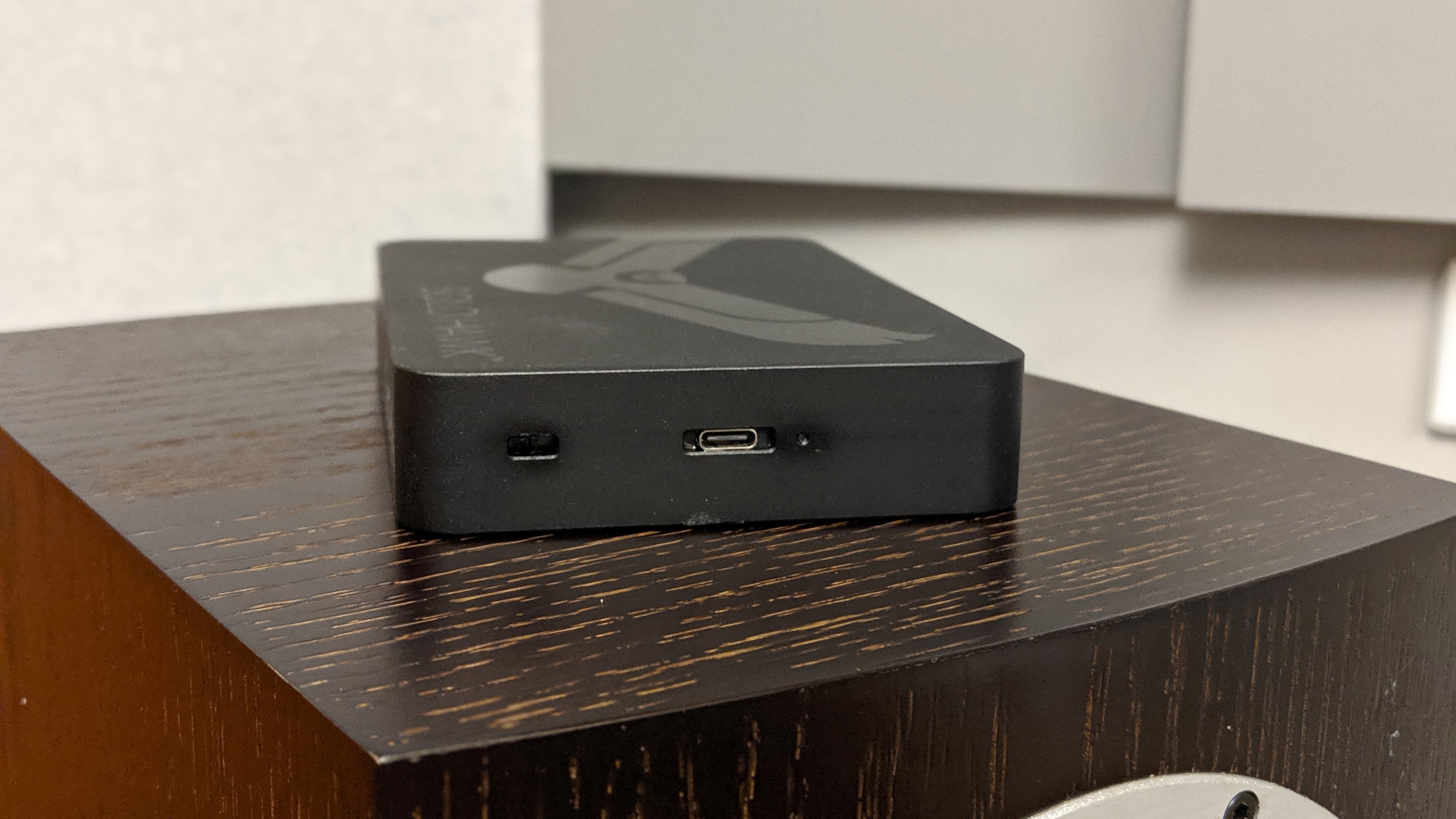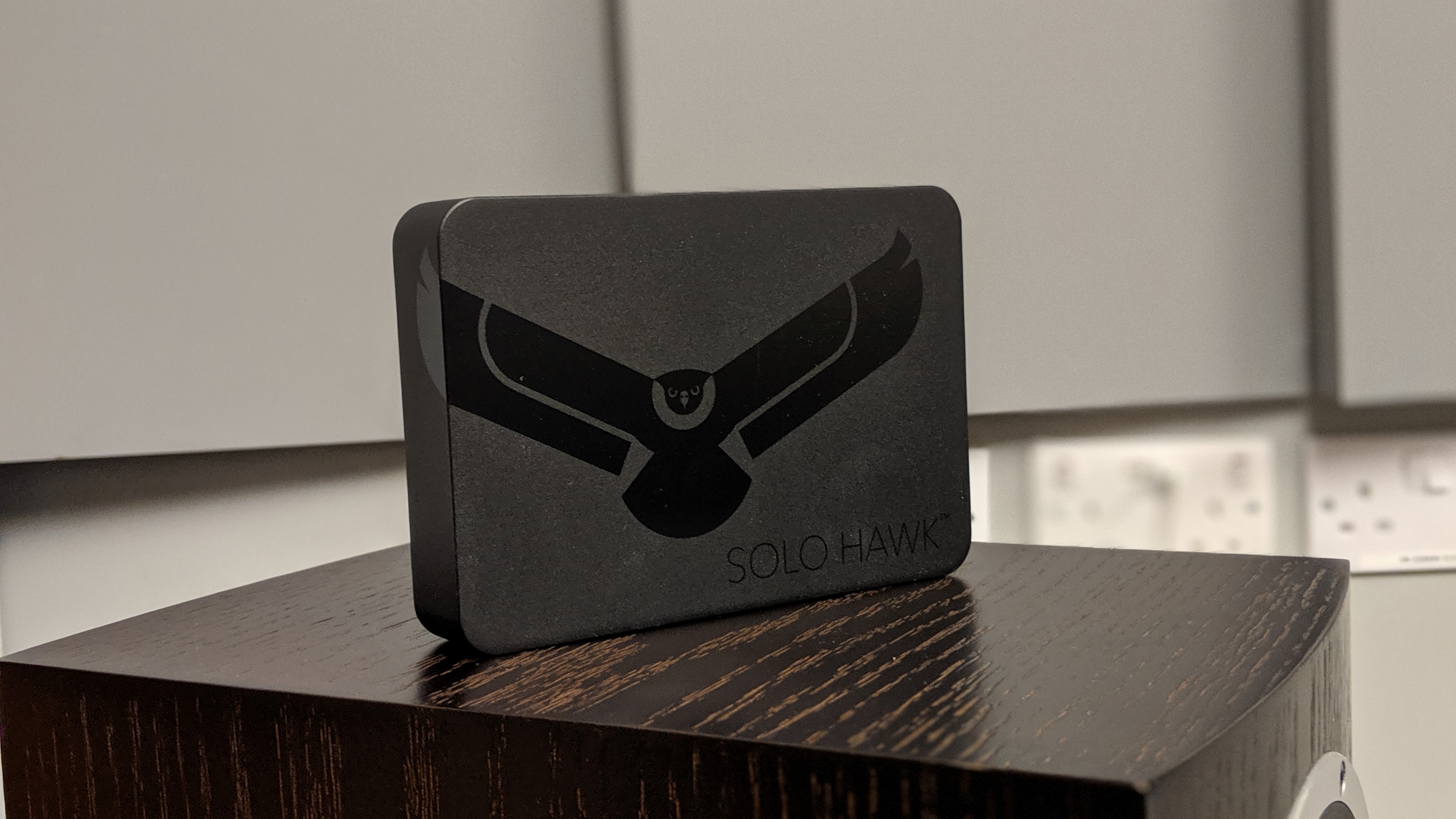TechRadar Verdict
The ioSafe Solo Hawk targets a very specific niche with a unique offering that combines a capable storage solution and an industry-leading warranty with free data recovery services. Not our preferred rugged SSD solution but one which will definitely appeal to those working in very challenging environments.
Pros
- +
Data Recovery Service included
- +
5-year warranty
- +
Good performance
- +
Reassuringly sturdy
Cons
- -
Surprising decision to go SATA when PCIe would have made better sense
- -
No encryption
- -
Expensive compared to competition
- -
Seatools would have been great
- -
Not fireproof
Why you can trust TechRadar
External hard disk drives fall into two categories; those that are rugged and those that aren’t. For those that look for even more, there’s the ultra rugged category where ioSafe is one of the major players. It has just launched its Solo Hawk Rugged SSD, a storage device that comes with a hefty price tag ($319 for the 500GB model, $399 for the 1TB model) but also with an impressive list of military standards to which it adheres.
- Also check out the best rugged smartphones of 2019

Design
The drive has been tested in the following scenarios; a 10-foot drop (MIL-STD-810G 516.7), a 72-hour immersion in 10 feet of saltwater or freshwater (IP68), full immersion in diesel fuel, oils, hydraulic fluids, aircraft fuels, 12' depth for one hour (MIL-STD-810G Method 504.2), Crush resistant to 2500 pounds, rain, freezing rain, blowing dust and sand, salt fog, UV, and ice (MIL-STD-810G 506.6, 521.4, 510.6, 509.6, 505.6) and finally operating at 30,000 feel altitude (MIL-STD-810G 500.6).

Externally, the drive is different from most external SSD we’ve seen in the past. This one is bulky (144 x 98 x 24mm) and heavy (486g). That’s because of the matte metal enclosure that surrounds and protects the electronics inside. There’s a USB 3.2 Gen 2 Type-C connector which tops at a 10Gbps and should help move overall performance beyond. Note that the latter is not protected by any flaps.
A blue LED will indicate whether the drive is ready for operation.
Hardware
The drive used by the Solo Hawk is a Seagate Barracuda (ZA500CM10002); this is a SATA SSD that uses 3D TLC NAND flash memory with rated read/write performance of 560/530MBps, near the maximum theoretical limit allowed by the SATA protocol. It retails for about $70 and comes with Seagate’s own set of software suite (Seatools) that tests and analyzes the health of your SSD, one which is absent in ioSafe’s version.
Performance and in use
Here’s how the ioSafe Solo Hawk performed in our benchmark tests:
CrystalDiskMark: 514MBps (read); 475MBps (write)
Atto: 503MBps (read, 256mb); 528MBps (write, 256mb)
AS SSD: 511MBps (seq read); 475MBps (seq write)
We couldn’t fault the drive given the hardware used. This is still a SATA based device and therefore it behaves as one, albeit slightly better because of the USB 3.2 Gen 2 connector which has double the throughput of USB 3/3.1. A collection of files totaling 100GB was transferred in 293 seconds, a smidgen faster than the 1TB Sandisk Extreme. Numbers from the other tests that we performed (AJA, CrystalDiskMark, ATTO and AS SSD) showed that it is a decent performer overall.
The ioSafe Solo Hawk comes with a two-year warranty which can be extended to five years; that includes the bundled data recovery service. Ironically, the SSD inside the drive comes with a five-year warranty albeit, not against the sort of physical abuse that the Hawk might be subjected to. The Solo Hawk can withstand temperatures between -20 and 50 degrees Celsius, which we suspect is non-operating (i.e. when the device is at rest).
The Solo Hawk is bundled with Genie Timeline Pro, a popular backup software that offers basic backup and disaster recovery features. More interesting is the free bundled data recovery service (DRS) which, in ioSafe’s own words, provides “comprehensive protection against the costs associated with data recovery”.
Note that there are a number of disclaimers pertaining to the cost and effort associated with the recovery attempts. There’s also the fact that the Solo Hawk is not fireproof and as such the DRS does not cover fire damage. At $129, the extra 3-year warranty is well worth buying.
The drive doesn’t come with hardware-based encryption which would have been handy given the sort of audience it targets.
Competition
Given the ubiquity of external SSD storage, it is not surprising that there’s plenty of competition out there. None though come with up to five year warranty or with a free data recovery service.
The Adata SE730H is an external SSD that was launched back in 2017 and features an older USB protocol. That said, if you can live with a lower transfer speed, you will have grabbed a bargain. It is tiny (no bigger than a stack of credit cards), carries a three year warranty as standard and costs less than $150, meets MIL-STD 810 requirements and waterproof (IP68).
The SanDisk Extreme Portable SSD 1TB is faster than the above drive and has a rubber finish. It has an IP55 rating which gives it almost complete protection from particles and a decent amount of protection against water. It hasn’t been tested to MIL-STD 810 standards though which means that it is not directly comparable to the Solo Hawk.
Final verdict
The ioSafe Solo Hawk is as sturdy as it gets and while there are cheaper options out there, its five year warranty and bundled data recovery services means that it will suit the demands of a particular audience that requires “extreme protection for extreme environments” as per ioSafe’s own tagline.
The extra warranty however bumps the price of the 1TB model to more than $500, which is more than three times that of the competition. Our preference would be to operate a consistent workflow that includes a regular backup schedule (commonly known as 3-2-1), something ioSafe acknowledges in its own pamphlet. Having only one drive is always perilous as it might get lost, damaged by fire or stolen.
Then there’s also downtime associated with recovery and legal potential ramifications. Cloud storage is now cheap enough for some storage vendors to bundle it with their products; Zoolz, one of our picks for best cloud storage of 2019, sells a 2TB lifetime subscription for as little as $350.
- We've also highlighted the best rugged hard drives of 2019

Désiré has been musing and writing about technology during a career spanning four decades. He dabbled in website builders and web hosting when DHTML and frames were in vogue and started narrating about the impact of technology on society just before the start of the Y2K hysteria at the turn of the last millennium.
